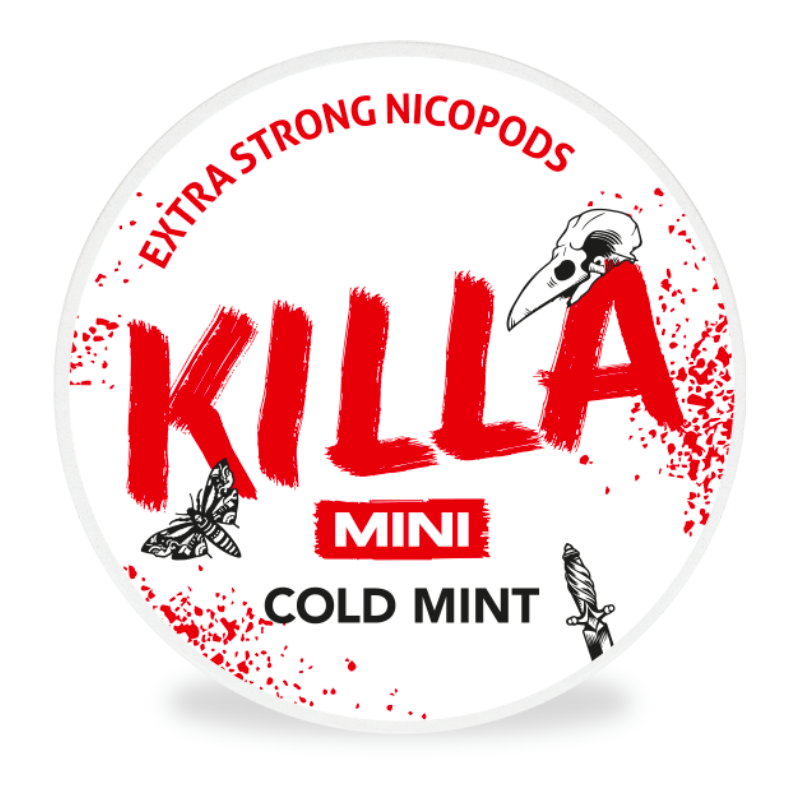What You Need to Know About How long does nicotine stay in your system?
Kevin
Nicotine is in tobacco products and sticks around in your body for different lengths of time. The time nicotine stays can vary. This depends on the test kind, how often you use nicotine, and your body’s way of breaking things down. For jobs, health or life insurance checks, legal tests, or when quitting, knowing how long it lasts is crucial.
Key Takeaways:
- Nicotine can stay in your system for different durations depending on various factors
- Tests used to detect nicotine include qualitative and quantitative testing
- Cotinine is a metabolite of nicotine and is often preferred for testing
- Nicotine and cotinine can be detected in blood, urine, saliva, and hair tests
- Factors such as metabolism, liver function, age, diet, medication, sex, and kidney function can influence nicotine elimination
Nicotine Testing Methods and Nicotine Vs Cotinine
People use two main ways to see if nicotine is in the body: qualitative testing and quantitative testing. We will look at these to know not only if there’s nicotine but also what level. We’ll also see what makes cotinine similar to and different from nicotine.
Qualitative Testing: Presence or Absence
Qualitative testing tells us if there’s nicotine in the body. It helps answer “Is there nicotine?” It’s often used to check quickly if someone was around nicotine recently.
Quantitative Testing: Measuring Concentrations
Quantitative testing, however, measures how much nicotine or cotinine is in the body. Since cotinine lasts longer in the body, it’s better for showing long-term nicotine use.
“Qualitative testing shows us just if there’s nicotine. But quantitative testing tells us more. It gives details about smoking, like how much or if you quit.” – Dr. Emily White
This kind of testing is key in studies, healthcare, and quitting smoking programs. It tells healthcare workers a lot about smoking habits.
Understanding the Difference: Nicotine Vs Cotinine
Nicotine is in tobacco, while cotinine is what is left when the body breaks down nicotine. Cotinine stays in the body longer, showing nicotine use even after nicotine is gone.
Here’s a simple way to see the testing methods and how nicotine and cotinine differ:
| Nicotine Testing Methods | Nicotine | Cotinine |
|---|---|---|
| Qualitative Testing | Shows if there’s nicotine | Includes cotinine |
| Quantitative Testing | Amount of nicotine | Shows cotinine level too |
Knowing this, finding cotinine in the body tells us there has been nicotine contact. This could come from smoking, being around smoke, or using nicotine products.
Duration of Nicotine and Cotinine in Blood and Urine
Nicotine and cotinine show up in both blood and urine tests. When you smoke, nicotine hits its highest point right away. It then drops quickly. Nicotine usually leaves the blood in 1 to 3 days, but cotinine can stay for 1 to 10 days. In urine, both substances disappear after 3 to 4 days without smoking.
Blood tests can tell if someone has smoked lately. This is because nicotine and cotinine levels change quickly after smoking. But, these tests might miss if you smoke every day because nicotine leaves the blood fast.
Duration of Nicotine and Cotinine in Blood
| Substance | Duration in Blood |
|---|---|
| Nicotine | 1 to 3 days |
| Cotinine | 1 to 10 days |
*Table: Duration of Nicotine and Cotinine in Blood*
Urine tests pick up nicotine and cotinine for longer than blood tests. They can show if someone smoked recently or in the past. But, these tests don’t work well for seeing very recent smoking, within a few days.
Duration of Nicotine and Cotinine in Urine
| Substance | Duration in Urine |
|---|---|
| Nicotine | Up to 3-4 days |
| Cotinine | Up to 3-4 days |
*Table: Duration of Nicotine and Cotinine in Urine*
It’s key to know how long nicotine and cotinine last in blood and urine. This is important for jobs, health checks, and helping people quit smoking. Knowing this helps read test results better. It tells how much someone smokes.
Saliva and Hair Testing for Nicotine and Cotinine
Saliva and hair tests show if someone uses tobacco. They look at nicotine and its form, cotinine. These tests are great for checking different times someone was around nicotine.
Saliva Testing: Detecting Cotinine
Saliva testing catches cotinine well. Cotinine comes from nicotine and stays in saliva up to 4 days after using tobacco. So, this test tells us if someone has been near nicotine recently.
Saliva testing is easy and doesn’t need blood. People use it in many places, like at jobs or to quit smoking. It’s good for seeing if people followed stop smoking plans.
Hair Testing: Assessing Long-Term Tobacco Use
Hair testing is good at checking tobacco use over a long time. It can find nicotine in hair a whole year after tobacco use. This tells a lot about how much someone uses tobacco over time.
Also, hair tests find cotinine in hair for a few months after someone quits tobacco. This helps keep an eye on tobacco use and if someone is really stopping.
In courts, clinics, and work, people use hair tests a lot. They see if someone used tobacco over a long time. This kind of test is really good for telling more about tobacco use.
Factors Affecting Nicotine Metabolism and Elimination
Lots of things affect how long nicotine stays in our bodies and how quickly we remove it. Things like our genes, how good our liver works, and our personal metabolism matter a lot.
Each person breaks down nicotine differently, mainly because of their genes. Some people get rid of nicotine fast, while it lingers longer in others. This all comes back to our unique genetic makeup.
Our liver is key in getting rid of nicotine. It changes nicotine into waste that we can then get rid of. But, if there’s something wrong with our liver, this process may slow down.
How old we are, what we eat, the medicine we take, and even if we’re a boy or a girl can change how we deal with nicotine. As we grow older, our body’s ways of working slow down, possibly keeping nicotine longer than before. What we eat and the medicine we take can also slow or speed up this process. The differences in how guys and girls’ bodies work can cause changes too.
Our kidneys have a part to play too. They help clean our blood of all kinds of waste, including what’s left from nicotine. But if the kidneys aren’t working well, this could keep nicotine in our system longer.
A mix of things impacts how quickly we get rid of nicotine. Our genes, liver, age, diet, and more all play a part.
| Factors | Affected Metabolism and Elimination of Nicotine |
|---|---|
| Genetics | Can affect the rate at which nicotine is processed |
| Liver Function | Responsible for breaking down nicotine into metabolites |
| Age | Metabolism tends to slow down with age |
| Diet and Medication | Can affect how nicotine is processed and eliminated |
| Sex and Hormonal Differences | Can contribute to variations in nicotine metabolism |
| Kidney Function | Affects the elimination of nicotine from the body |
Clearing Nicotine from the Body and Nicotine Withdrawal
To clear nicotine from the body, don’t use tobacco or nicotine products. Staying hydrated, exercising, and eating foods high in antioxidants is key. They speed up getting rid of nicotine.
Drinking enough water helps remove toxins, like nicotine, from the body. It supports the natural detox process.
Regular exercise aids in nicotine elimination. It boosts blood flow and metabolism, helping sweat and internal organs clean.
Eating foods rich in antioxidants is also beneficial. They shield cells from toxin damage, including nicotine. Try adding berries, greens, and green tea to your meals.
When you stop using nicotine, you might feel withdrawal symptoms. This could mean wanting to smoke, getting more hungry, feeling tired, or your mood changing. Talk to professionals about quitting or use their recommended replacements. They can make withdrawals easier, moving you towards being nicotine-free.
Getting nicotine out of your system takes time and effort. Look to doctors or groups for support. They can keep you going and help with the tough parts of quitting.
Nicotine Poisoning and Safety Measures
Too much nicotine can cause nicotine poisoning. It’s dangerous and bad for your health. Nicotine is very addictive. It messes with your brain and heart. This causes a lot of problems.
Feeling your heart race, your blood pressure go up, or feeling sick are signs. So is being confused. It’s really worrying, especially for kids and anyone near e-cigarettes or smoke.
E-cigarettes, or vapes, have become popular. They’re seen as a safer option than normal cigarettes. But they can still be dangerous. Why? They have liquid with nicotine. You heat it and breathe in the smoke.
Being around someone smoking can harm you too. The smoke can make you take in nicotine. This is bad news, especially if it keeps happening.
To stay safe and avoid nicotine poisoning, do a few things:
- Keep anything with nicotine away from kids.
- Put nicotine things in places kids can’t get to. Use lockable places like a high cupboard.
- Throw away nicotine stuff the right way. Don’t just toss them. It can cause accidents.
- Know what to look out for. If you see symptoms, you need to act fast.
- If you think someone has nicotine poisoning, don’t wait. Call for help or go to a doctor right away.
Follow these tips to keep safe from nicotine poisoning. Taking care of yourself and others, especially kids, is important. It helps keep everyone away from nicotine dangers.
Quote:
“Nicotine poisoning can have serious health consequences and is a cause for concern, especially with the rise in e-cigarette use and exposure to secondhand smoke. By taking proactive safety measures and being aware of the signs of nicotine poisoning, we can help prevent its occurrence and protect our health.” – Dr. Emily Johnson, Chief Medical Officer at ABC Hospitals
Safety Measures for Nicotine Poisoning Prevention
| Safety Measures | Description |
|---|---|
| Keep nicotine products out of the reach of children | Store nicotine products in child-resistant containers; keep them secured in a locked cabinet or high shelf |
| Properly dispose of nicotine products | Follow specific disposal instructions to prevent accidental ingestion or exposure |
| Educate yourself and others | Learn about the signs and symptoms of nicotine poisoning; spread awareness within your community |
| Seek medical assistance | If nicotine poisoning is suspected, call the local poison control helpline or seek immediate medical attention |
Nicotine Detection in Different Tests and Factors Affecting Duration
Many things can change how long nicotine stays in our bodies after a test. Age, how much we weigh, our genes, how much we drink, and how active we are all matter.
Age: Young people might break down nicotine faster than older people.
Body mass: If someone has more body fat, nicotine might stay longer in their body.
Genetics: Our genes also play a big part, making some people clear nicotine slower.
Hydration level: Drinking enough water can help our bodies get rid of nicotine and other toxins easier.
Physical activity: Moving more can make our bodies burn through nicotine faster.
It’s key to know these things when looking at nicotine test results. Tests using blood, urine, saliva, or hair can tell if we’ve used nicotine. But, everyone is different. This means the tests can show nicotine for different times.
Nicotine Detection in Different Tests
| Test Method | Window of Detection |
|---|---|
| Blood Test | 1 to 3 days |
| Urine Test | Up to 4 days |
| Saliva Test | Up to 4 days |
| Hair Test | Up to 12 months |
This table gives a general view on how long different tests can spot nicotine. But, everyone’s body works in its own way, maybe showing nicotine for longer or shorter times.
Smoking Cessation and Resources for Quitting Tobacco
Stopping tobacco and nicotine products is key to cut nicotine from your system. It will boost your health. Ready to start this journey? There are many ways to get help.
One great help is the nicotine replacement therapy (NRT). It eases withdrawal with controlled nicotine. You get this through gum, patches, lozenges, or inhalers. With NRT, you can lower nicotine slowly. This boosts your stop-smoking chances.
When quitting smoking, getting help from a doctor is important. They offer special advice and make a plan just for you. They keep track of your progress too. They might suggest support groups, counselling, or meds to improve your quitting journey.
Quitting tobacco is hard, but it’s possible with help. Make full use of the help out there. Contact doctors and others who want to help you quit. They aim to better your health and life by guiding you through this process.







